Our Belief
The world is faced with unprecedented development and humanitarian challenges. Inequality, conflict, political instability, economic contractions, a global pandemic, and a rapidly changing climate force us to think differently about how we address these threats. As the gap widens between humanitarian and development needs and the resources available to address them, we are re-thinking how we work to better harness limited resources to save lives and ensure the rights of children everywhere.
Save the Children acts as an ally to children and local actors by elevating and strengthening their role and voice to drive sustainable impact. We believe that by shifting power and embracing localized approaches, Save the Children and the partners we work alongside – including children themselves – can better respond to increasingly dynamic development and humanitarian challenges and ensure that all children survive, are protected, and have healthy starts to life. This belief is captured in our Localization Policy and is the basis upon which our "Local to Global for Impact" vision for a Save the Children of the future is built upon.
In 2023, Save the Children committed over $205 million USD to the local and national partners that we work with, representing 9.7% of our global portfolio. While not insignificant, it is also not enough – we aim to increase both the quality and quantity of funds transferred to local and national actors wherever we work.
Across Save the Children’s global Movement, we work with Children Parliaments, Child/Youth-led Organizations, and Children directly to better understand their needs and priorities. These inputs inform our strategy and the design and implementation of development and humanitarian initiatives in their respective communities.
This belief is not merely rhetorical. Save the Children’s approach to localization and shifting power is grounded in tangible actions enshrined in the guiding principles of our Localization Policy, operationalized in our current strategy as the Shift Power Enabler, and further demonstrated by our commitments to the Grand Bargain and Pledge for Change.
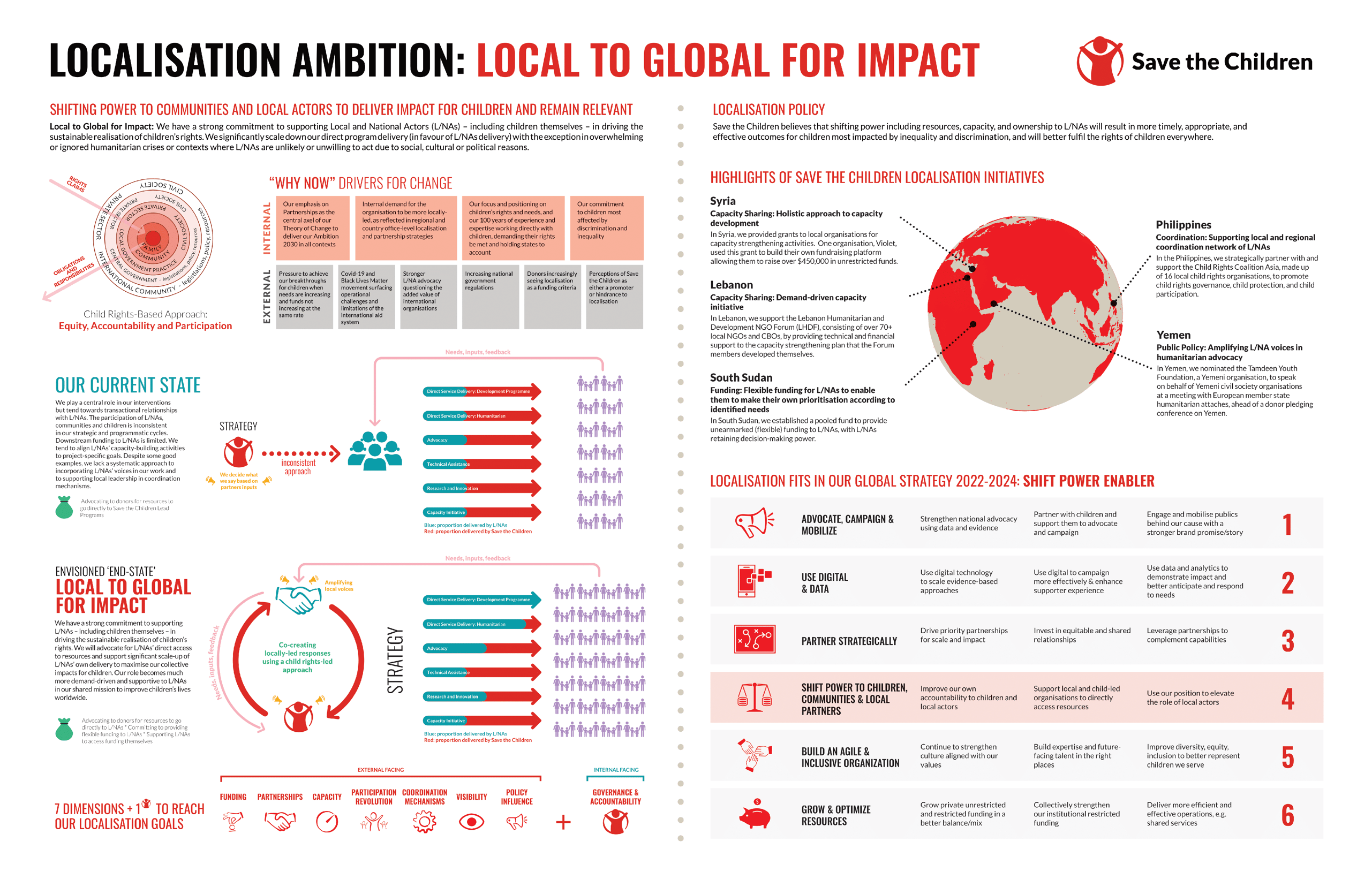
Seven Dimensions of Localization
In line with these commitments, Save the Children is actively engaged across all seven dimensions of localization to shift power and embed localized approaches in our ways of working:
Funding
Save the Children US developed the Partner ICR Guidance, which aims to ensure L/NA partners are aware of the various cost recovery options available to them on USG-funded awards as well as the implications of each option so that they may make informed decisions on which cost recovery options best meet their organizational needs.
In 2023, SC launched the Youth Led Organization (YLO) Investment Fund Pilot, extending flexible investments to YLO partners in Malawi and Niger. Through this pilot, partner YLOs are provided a highly flexible grant that they can use to cover core costs/overheads, invest in their own capacity strengthening, and/or fund programming or advocacy initiatives responding to the needs of the communities they represent. Evidence generated through this model will be used to establish sustainable sources of funding to take this model to scale across our global portfolio.
Partnerships
Through efforts like the Locally-Led Humanitarian Response in Northeast Nigeria, SC is exploring new ways to work with L/NA counterparts that put them in the lead of designing and implementing responses or projects in their own communities. As one partner in the project put it, “90% of the activities we suggested were ultimately in the final proposal.”
Through products like our annual Partnership Survey, SC seeks to regularly assess how partners perceive their relationship with us, identify pain points, and make organizational adjustments to ensure these relationships are fruitful and more equitable.
Capacity
Save the Children has long been a leader in the facilitation of robust, tailored, and partner-led approaches to Organizational Capacity Strengthening (OCS) and has developed specific guidance and tools for delivering OCS approaches for networks and child-led organizations.
In Cote d’Ivoire, SC is delivering a Transition Award as part of a $100M USD HIV/AIDS prevention program. Local partners are supported to strengthen capacities needed to directly manage US funds and have since been transitioned to prime awardees with USAID.
Participation Revolution
In Indonesia, Save the Children created a Children & Youth Advisory Network (CYAN), with the mission to ensure the fulfillment of meaningful participation of children & youth (with access for young people from disability groups and diverse socio-economic backgrounds) in decision-making related to the lives of children & youth. CYAN was formed to ensure SC Indonesia can develop policies & programs through meaningful child & youth participation, and to promote development policies that are based on the best interest of children & youth. This includes child- and youth-led advocacy on climate, gender equality, and children’s rights policies up to the national level in Indonesia and even on the global scale.
Coordination Mechanisms
As co-lead of the Global Education Cluster, Save the Children has worked alongside the Global Child Protection Area of Responsibility (CP AoR), Global Nutrition Cluster, Global WASH Cluster, and Street Child UK to develop and roll out the Inter-Agency Toolkit on Localization in Humanitarian Coordination (2022).
In 2023, Save the Children and UNICEF partnered with the Universal Network for Knowledge and Empowerment Agency (UNKEA) – a leading national actor delivering education programming in South Sudan – to support UNKEA in taking up the co-lead role of the South Sudan Education Cluster (SSEC). To learn more about UNKEA’s co-lead role on the SSEC check out this video case study.
Visibility
Save the Children is committed to ensure that Save the Children publications, communications, proposals, and reporting pay due respect to the contributions and leadership of L/NA partners in driving sustainable change in their communities. As part of the Partnership Quality Marker, currently being piloted, proposal teams will be specifically assessed on the degree to which partner contributions and leadership are made visible in the proposals we develop.
Save the Children is also developing additional localization communications guidance to ensure partners are included in external communications and that language used does not diminish their roles and leadership (either intentionally or unintentionally).
Policy Influence
Save the Children is committed to ensuring the voice of the most marginalized children is heard by decision-makers at all levels. In line with this commitment, Save the Children has launched the Girl-Led Movement Building project to strengthen girl-led networks and increase girl’s civic and political leadership around the world.
In 2021, Save the Children Facilitated the participation of an L/NA partner – Gargaar Relief Development Organization (GREDO) – in a United States House Foreign Affairs Committee meeting on locally-led development, providing direct input into the policy deliberations of the US Congress.
Save the Children hosted nine country-level roundtables for the Summit for Democracy, providing platforms for children and local civil society to speak directly to their governments about their top issues related to accountable governance and fulfillment of children’s rights in their country.
Explore Our Localization Work
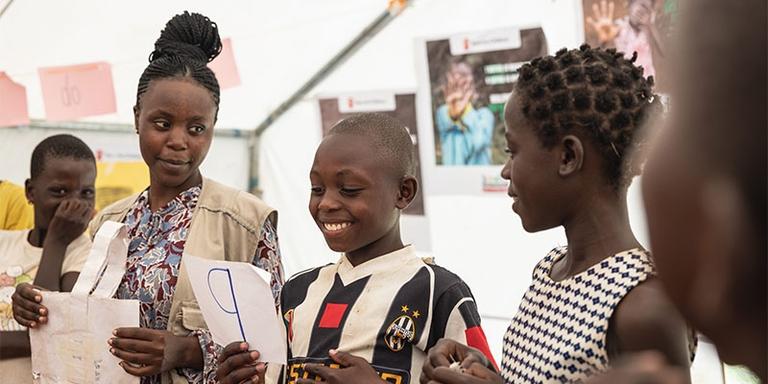
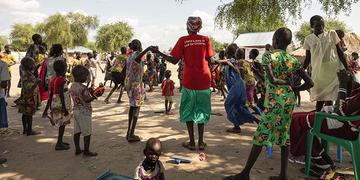
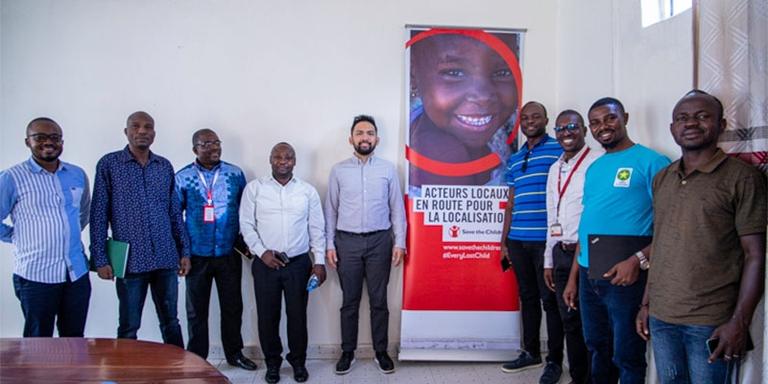
Prioritizing Youth Wellbeing in Democratic Republic of Congo with AJEDEC
In response to the growing issue of youth recruitment by armed groups in eastern Democratic Republic of Congo, the national government established a Disarmament, Demobilization and Reintegration (DDR) program in 2004. When Save the Children was charged with delivering the DDR program, one young organization stood out for its strong commitment to youth outreach and child protection work focused on the consequences of war on youth: the Association des Jeunes pour le Développement Communautaire (AJEDEC). Almost two decades on, AJEDEC remains a key partner and is now a recognized leader in the area of child protection, receiving funding directly from international organizations. Read more here
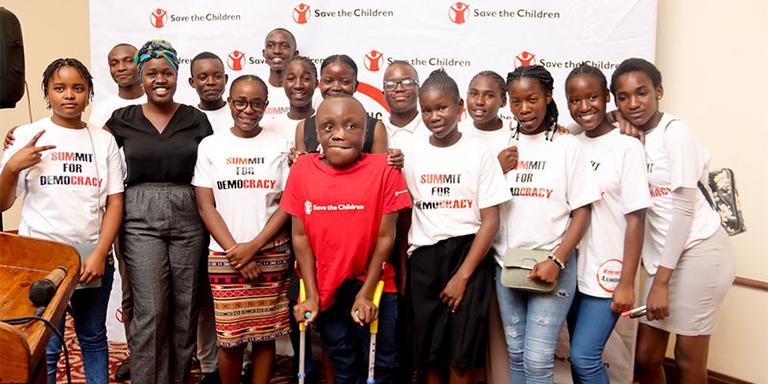
Creating Platforms for Children’s Voices Through Country-Level Roundtables
While promotion of human rights was at the top of the agenda at the first Summit for Democracy in 2021, there was limited conversation about children’s rights specifically, and very little opportunity to hear from children themselves. For the Summit for Democracy Year of Action in 2022, Save the Children hosted eight country roundtables, providing platforms for children and local civil society to speak directly to their governments about their top issues related to democratic strengthening and fulfillment of children’s rights in their country, including transparency and access to information, accountability for previously signed international commitments (e.g., the UN Convention on the Rights of the Child and the Safe Schools declaration), public participation in decision-making, fair financing for children, climate justice, girls’ political leadership, and more.
FIND OUT MORE
If you are interested in learning more about Save the Children's approach to localization and our Localization policy, please contact us:
[email protected]




